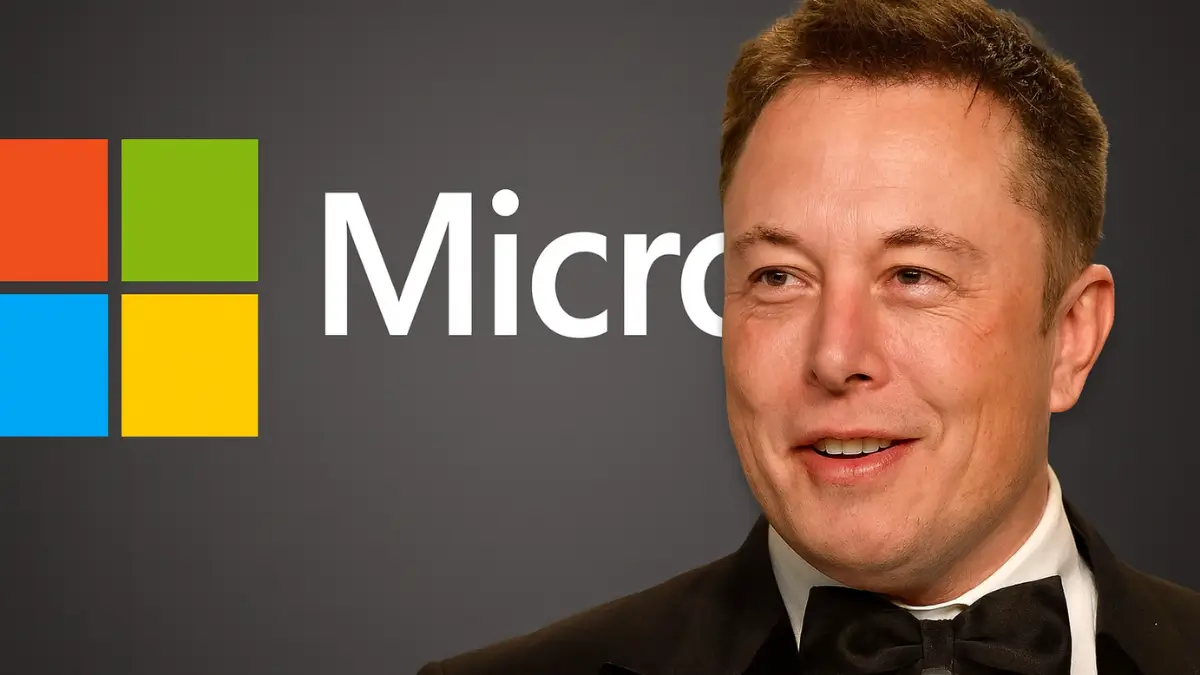Whenever Elon Musk announces something new, the tech world pays attention. From rockets and EVs to social media and brain-computer tech, Musk has a track record of shaking up industries. His latest move is no different—and it comes with a name that’s as cheeky as it is ambitious.
Meet Macrohard, Musk’s new venture under his AI startup xAI. The name is an obvious play on Microsoft, but Musk insists the project is “tongue-in-cheek, yet very real.” The goal is to rethink how software is made, using AI to automate the process that traditionally required human programmers.
For Americans who rely daily on Microsoft’s software in schools, offices, and government systems, this announcement feels especially bold. Could Musk really build a future where AI simulates—and maybe replaces—Microsoft?
What Exactly Is Macrohard?
Macrohard is designed as a “purely AI software company.” Unlike today’s tech giants that still depend heavily on human engineers, Musk’s plan is to let AI do the work.
At the center of this vision is Grok, Musk’s large language model. Grok would generate hundreds of specialized AI agents: some for coding, others for video and image creation, and others for interpreting information. Working together inside virtual environments, these agents could produce entire software ecosystems—essentially automating the work of massive developer teams.
So while the name sounds like a joke, the strategy behind it is serious. Musk has made clear that Macrohard is being built to directly challenge Microsoft’s dominance in the software world.
Musk’s Direct Challenge to Microsoft
Musk hasn’t been shy about the target. In fact, he even posted, “Macrohard >> Microsoft.” His argument is simple: since Microsoft doesn’t manufacture physical hardware, its products are vulnerable to replication by AI.
That means software like Word, Excel, Teams, or PowerPoint could one day be replaced by AI-driven versions created by Macrohard’s agent systems. For millions of American students, office workers, and public servants who rely on Microsoft products every single day, that’s a radical idea.
It’s also a shot across the bow of one of America’s most powerful tech companies. If Musk succeeds, it could force Microsoft to rethink its entire approach to AI-enabled software.
The Muscle Behind the Mission: Colossus 2
A vision this ambitious needs serious infrastructure, and Musk has already built it. Macrohard’s backbone is Colossus 2, a supercomputer housed in Memphis, Tennessee.
Colossus 2 is already considered one of the most powerful supercomputers in the world. But Musk plans to expand it further by acquiring millions of Nvidia GPUs. That kind of compute power is exactly what’s required to run and train thousands of AI agents at once.
For the U.S., this isn’t just another AI startup. Macrohard represents a large-scale investment in American supercomputing, cementing the country’s role as a global leader in AI research and deployment.
How Macrohard Plans to Work
The concept behind Macrohard is called multi-agent AI. Instead of one giant AI model doing everything, Grok will spawn many smaller, specialized agents that work together.
Think of it like a digital workforce: one AI agent codes, another handles design, another processes video, and another interprets user requests. Inside a shared virtual environment, these agents collaborate until they generate a finished product.
It’s a completely different model than today’s software development, which relies on teams of human programmers. If it works, Macrohard could automate what now takes companies years—and deliver it in days or even hours.
Why It Matters for the U.S.
For an American audience, the significance is clear. Microsoft is one of the country’s most iconic tech giants, and its products power schools, businesses, and federal systems. If Macrohard proves it can build AI-driven alternatives, it could reshape the way Americans interact with everyday software.
There are also economic implications. Licensing fees for Microsoft products are a major expense for U.S. companies and government agencies. If Macrohard offers AI-driven systems that are faster and cheaper, it could push down costs and accelerate adoption.
Beyond business, this is about America’s role in the global AI race. With Colossus 2 and massive GPU investments, Macrohard positions the U.S. to lead in next-generation AI infrastructure.
The Business Side: More Than Just Talk
Musk has taken concrete steps to make Macrohard official. Reports confirm that Macrohard Ventures, LLC has been incorporated in Delaware. In addition, the Macrohard trademark has been filed with the U.S. Patent and Trademark Office.
These moves show that Macrohard isn’t just a passing experiment or a Twitter joke. It’s a structured company with a legal foundation in the U.S.—ready to operate at scale.
Looking Ahead
Macrohard is Musk at his most disruptive: bold, irreverent, and dead serious. With a name that pokes fun at Microsoft and an infrastructure built on one of the world’s most powerful supercomputers, the venture is aiming to change the rules of the software game.
The real question is whether AI agents can truly deliver what Musk envisions. Can they replicate decades of Microsoft development? Will businesses and governments trust AI-driven software for critical tasks? And how will Microsoft respond to this direct challenge?
For now, Americans can only watch as Musk once again pushes the boundaries of what’s possible. Macrohard may start as a tongue-in-cheek name, but it could end up rewriting the future of software in the U.S. and beyond.


1 thought on “Musk’s xAI Launches Macrohard to Take On Microsoft With Grok AI”